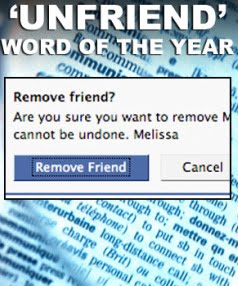In culture, literature, and theory, the 1960s marked the beginning of postmodernism. And quickly the prefix post- became the operative way of understanding the world: post-war, post-structuralism, post-colonialism, post-industrialism; then, post-human, post-Boomer, and post-punk; more recently, post-millennial and post-apocalyptic; and for a least a little while in 2008, post-partisan and post-racial. (Many a postdoc has been devoted to developing post-anything.) Post- became more than a prefix—it became a worldview, an epistemological category.
But what, students in my class on postmodern literature reasonably asked, can possibly come after postmodernism, or post- anything? More post. Post-postmodernism. [Shudder]. Post- is the prefix that devours itself, since it is always after, belated, still waiting, and deferred. Nothing can come after post-.
Nothing except, with apologies to Existentialism, a new kind of nothing.
Enter: Un-.
Un-, like post-, is not a word. Unlike other prefixes, however, like pre- or post-, or re- or un-’s near-relative, under-, un- does not describe, affix in time, suggest repetition, or, like mis- or mal-, even suggest that something is wrong. Unlike with-, dis-, de-, counter-, anti-, or even the powerful non-, un- does not suggest opposition, working against. Un- suggests more than reversal or opposite: it is negation, disappearance, taking out of existence. And if post- described the world after about 1945, Un- describes the world from 2000, or maybe 2001, to the present. We are living in the era of Un-.
Now, I realize that lots of words began with Un- before 2000. I used “unlike” twice in the last paragraph alone. But I used it as a preposition, “dissimilar from.” On Facebook, unlike is a verb: if you click Like, and then decide that you don’t like that thing anymore, you can click Unlike and it will erase your Like. Since Facebook does not have a Dislike button, Unlike is as close as people can get.
But Unlike is as different from Dislike as unable to disable, unaffected to disaffected, unarranged to disarrange, unfortunate to disfortunate (which is sort of a word). Which is to say, very different. Both suggest opposition, but dis- implies an active opposition, expending energy to reverse. Un- feels passive, a kind of vanishing—or worse, the suggestion that the thing never was in the first place. When we Unfriend on Facebook, we do something we cannot do in real life or face to face, which is presumably why the word had to be recently invented. We don’t Unfriend corporeal people. We just—what, exactly? Stop being friends? Spend less time together? Drift apart? Or something stronger—not a drift but a rift. A fight, a falling out. We’re not on speaking terms anymore. But not Unfriend. We can only Unfollow online, on Facebook or Twitter. We can’t Unfollow in person. Unfriend and Unfollow seem etymologically and epistemologically close to Untouchable, with the implications of prohibition, exclusion, disappearance. Unclean.
Like many people who spend time at their keyboard, I have become reliant on Delete, on Backspace, on Undo. When I knock down a glass and wish it would float back in a startling cinematic backwind, or misplace my book and want it to reappear, or say something that I want to take back, I can picture Ctrl Z clearly in my mind’s eye. But it does not Undo. Glasses do not unbreak; books are not unlost but rather must actively be found (without Ctrl F, either). Words that are unspoken were never spoken, not spoken and stricken. We say, I take it back. But the words cannot be unsaid. Judges instruct juries to ignore testimony, but lawyers know that jurors cannot unhear. Judges cannot unstruct. Traumatized viewers cannot unsee.
And so Un- fails at complete erasure. Like a palimpsest, Un- can’t help but leave traces of its former self behind. The close reader can see what used to be there, the residue of virtual Friendship, the electronically unsettled path left behind after one has Followed, or been Followed. And perhaps this failure is for the best. The only thing more powerful than Un-’s fever dream of retroactive disappearance is that the wish cannot come true. If anything, the electronic world that birthed the fantasy of Undo is the same one that never lets us scrub our online prints away.
Time: 55 minutes
P.S. Please Like and Follow this blog.




